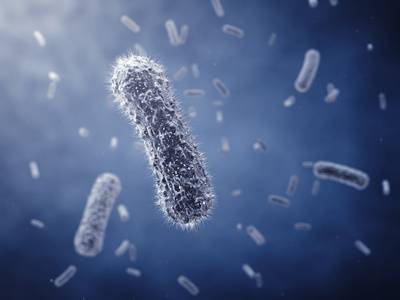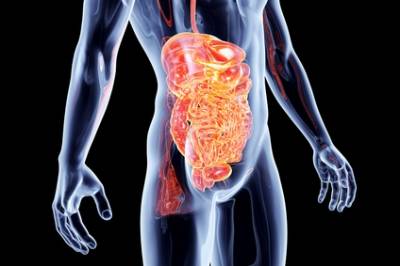Nature’s Best Kept Secret for a Strong Immune System!
Fi Jamieson-Folland explains how probiotics can improve your health and whether ‘live’ yoghurts are good enough to do the trick.
Most people will understandably think that bacteria are bad. However, believe it or not, lots of tiny little bacteria can be Nature’s best kept secret for a strong immune system. While most of us want a strong immune system, it can seem like a complicated topic. Should I be eating ‘live’ yoghurts? Will it give me the right balance of the ‘good’ bacteria in my tummy? Are all yoghurts are made equal, and don’t you only need something like this after you’ve taken antibiotics?
Quite frankly, it can all sound just a bit too confusing sometimes and maybe something best left to a health practitioner.
After all, if it was that important, wouldn’t my doctor have already told me to take them?

First, what are ‘probiotics’?
Well, let’s demystify this area, and give you some pointers on how you can take control of your health, and select a good ‘probiotic’.
So firstly, what are probiotics, and what can they do for you? Probiotics are basically minute, friendly bacteria that can do you the world of good. It gives us a clue when we look at where the word came from – a combination of the Latin ‘pro’ (for), joined with the Greek ‘biotic’ (life). And our tummies are so important when it comes to our general well being – not only because of our digestion in general – also because 70-80% of our immune system (how we fight off infections etc) is in our gut!
The right kinds of bacteria also help us digest our food, produce certain vitamins and hormones, help growth in our intestinal walls and stop the bad kinds of bacteria from taking over.
‘Probiotics’ is a name used for about 400 different types of tiny organisms that can create a healthy balance of the right kinds of organisms (called microfauna) in your intestines. The ones in our large intestines (colon) are called bacteria and they make up almost two thirds of the dry matter when we go to the toilet.
And ultimately, these little fellows can make a big impact on our overall health – and make our colons the most metabolically active area of our body. We’re walking around right now with literally trillions of microorganisms living in our gut. They actually contribute to around 2kg of our body weight!
Did you know?…
High quality powdered probiotics that are specially-coated, can be taken orally, simply by sprinkling in your mouth? This is especially handy if you have a sore throat. When your probiotic is packed with the right kinds of bacteria, it will help re-create the balance that’s often been lost when you have a sore throat.
So what can happen if we don’t have enough of the right bacteria? The effects can range from being almost unnoticeable, to life-altering. Poor digestion and irritable bowel problems, bloating, lack of healing over the long-term, skin rashes or break outs, bad breath, irritability and a lack of energy. These are all symptoms that I’ve come across for people attending my clinics – that have been related to a lack of the right gut fauna. This can happen through poor diet, some medications, older age and disease. They cause an imbalance, and the bad kinds of bacteria start to thrive. These ‘bad guys’ love things like animal fat, alcohol and refined sugars. Tea (other than herbal teas) and coffee can also affect the balance of your good bacteria.
If you have a health challenge that really concerns you, then make sure you check with your primary healthcare practitioner first.

So how can we help increase our good bacteria? The ideal foods that we can eat that our good bacteria like, are fresh whole grains and veggies especially garlic, green tea and miso. These can help with creating the ideal environment for your bacteria to live, including helping them survive the acidity of the stomach. Especially good are certain sugars found in bananas, leeks and soybeans. Although given the way that the majority of food is commercially grown, with fungicides, pesticides, herbicides etc, plus with harvesting happening too early before the foods have fully ripened, it’s uncertain how much we can get from our food alone. This is the reason that many people are looking at a prebiotic supplement too.
Ok, so how do we get the good bacteria? Yoghurt often comes to mind. The challenge is, that a lot of the commercially produced yoghurts are not always ‘live’ in the first place, let alone rich in the right types or amounts of ‘good guys’ bacteria. You may have heard of Lactobacillus acidophilus – which is often thought of as being in yoghurts. Oddly enough, the kinds of bacteria that have been the most clinically tested, may not always be in yoghurts in high enough amounts for them to help our bodies.
And the yoghurts don’t necessarily have the ideal environment in their containers for the ‘good guys’ to thrive before their expiry date. Because of this, taking a probiotic supplement is becoming more popular.
A word of caution, not all supplement sources are made equal! When you’re looking for your pre- & probiotic products, always check that they are certified pharmaceutical grade, they’re a brand that’s been independantly assessed. Search out ones that don’t need to be kept in the fridge…if you think about it, whilst you’re traveling is one of the most important times for you to have access to your ‘good guys’ bacteria!
How to take your powdered probiotic
You can add them to your smoothie (after blending), or mix into a small glass of water, or juice, or a nut milk. If you’re currently needing to take antibiotics – it’s best to take your probiotic an hour after you’ve taken your antibiotic. This helps to address that balance once the antibiotic has had its effect.
With probiotics, I believe the proof’s in the pudding! Trial some to see for yourself. If you’ve not trialed them before, and you’d like to receive a free sample of a pre- and probiotic that I’ve found (that tick all the boxes mentioned above!), or you want to find out more about excellent sources of both probiotics and prebiotics, email me with ‘Probiotics’ in the subject line.
Fi Jamieson-Folland D.O., I.N.H.C., is The LifeStyle Aligner. She’s an experienced practitioner since 1992 in Europe, Asia and New Zealand as a qualified Osteopath, Integrative Nutrition Health Coach, speaker, educator, writer, certified raw vegan gluten-free chef, and Health Brand Ambassador.

Facebook Instagram LinkedIn Pinterest YouTube
As Seen in Sweet Living Magazine 2013


You always do the right thing. God Bless you.
Thank you